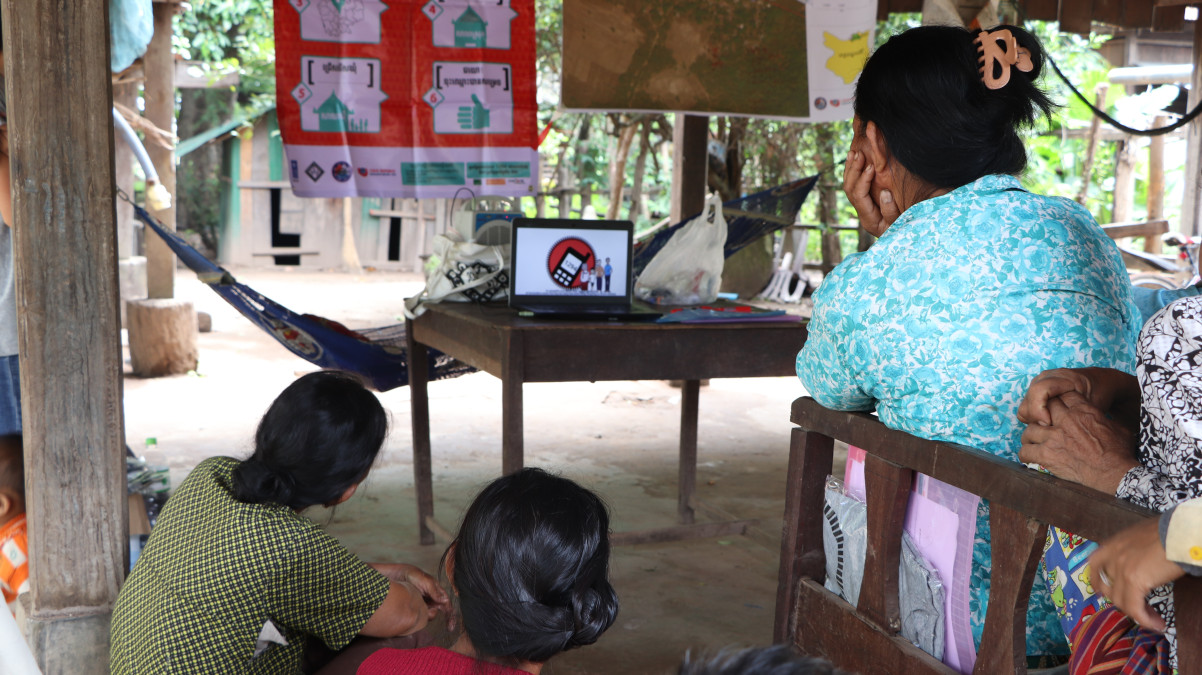Innovation in Cambodia: Strengthening the Country’s Early Warning System (EWS) 1294
Published: Oct 21, 2021 Reading time: 5 minutes Share: Share an articleCambodia is facing mounting development challenges due to climate change. More intense rainy seasons are resulting in increased frequency and severity of natural disasters, while drier growing conditions have hurt the agricultural sector, impacting household incomes and food security.

Already this year, Cambodians have weathered several devastating storms that resulted in damage caused by flooding, lighting strikes, and strong winds. For instance, in May, hurricane-force winds damaged more than 200 homes in Kampong Speu and Kampong Chhnang provinces.
Given these trends, there is an urgent need to address the safety of the families and communities affected by climate change related threats, and also to mitigate these threats going forward. Fortunately, Cambodia is at the forefront of strategically integrating digitalisation with government development priorities to support policy interventions.
EWS1294 as a #TechnologyforSafety
Safety is a key priority for the Royal Government of Cambodia (RGC). To promote safe communities, the RGC has introduced and implemented the Early Warning System (EWS) 1294, which is now recognised as the national EWS for Cambodia. EWS1294 is an innovative technology that uses GSM-enabled automated water gauges to provide important hazard forecasting information to disaster management authorities. The system also includes a dissemination platform that shares timely warnings with people who need to take extra precautionary measures to be protected from impending natural hazards. The platform shares alerts via Interactive Voice Response (IVR) technology, which informs vulnerable populations of rising water levels and adverse weather conditions, and gives instructions on safety measures for registered users when an incoming natural disaster is detected.
“The early warning system is one of the most effective dissemination technologies in Cambodia,” says Jak Chowdhary, People in Need’s EWS1294 Project Manager in Cambodia. "It aims to monitor fluvial data on a real-time basis. With such a sophisticated technology, it is able to share reliable hydrological information to support government action”. Everyone can register to the national EWS1294 hotline for free by dialing “1294” on their mobile phone.
The Evolution of EWS1294
First launched in 2013, EWS1294 has evolved to become one of the government’s most important communication tools. The system is used for delivering awareness messages on COVID-19, and for sharing information about the pandemic. “EWS1294 has played an important role in the safety of many people,” says Lukas Laube, People in Need’s Country Director in Cambodia. “We hope that it continues to develop as a reliable means to deliver information quickly, not only for natural disasters, but emergency response in general.”
With their well-coordinated response strategies and technological mindset, RGC has acted strategically in responding to emergencies in the country. This has paved the way for strong policy decisions when it comes natural disasters and the COVID-19 response.
With 27 sensors installed in all 25 provinces of Cambodia, EWS1294 can monitor river levels nationwide. When levels rise quickly, the sensors trigger alerts that the Provincial Committees for Disaster Management (PCDMs) uses to craft recorded messages for registered users.
Planning ahead
In the near future, early warning messages will be accessible even to those who are not registered with the 1294 system Bunsamkaneka Chrin, Urban EWS1294 Project Manager for People in Need in Cambodia, explains: “We are working on expanding the communication of early warning messages, making EWS1294 a much more powerful tool. We realised that EWS1294 can be integrated with other mediums and platforms, like public speakers. Public spaces like markets can be an effective way to pilot this, and this is what we aim to do in Krong Battambang. The pilot initiative will focus on the urban area of Battambang.”
Although EWS1294 is available nationwide, there is still the need to raise awareness to encourage more users. There are currently about 118,000 registered users on the platform, which planners hope to grow further when EWS1294 expands its communication lines. Currently, the EWS1294 project is advertising on social media, with an activation campaign using tuk-tuks (four-wheeled public transportation) on the streets of Phnom Penh. The campaign is scheduled to run through December 2021.
EWS1294 is expected to be fully transitioned to the National Committee for Disaster Management (NCDM) in March 2022, a milestone that will be marked by a handover ceremony further showcasing Cambodia’s commitment to safety from disasters and strengthened disaster preparedness.
International partners who have supported this innovative system are grateful for the commitment and efforts of the RGC. EWS1294 is a powerful tool to share knowledge and increase safety from natural disasters for the Cambodian people. This technology will continue to evolve to ensure future accessibility for all.
About Integrated EWS1249 Project and Urban EWS1294 Project:
The Early Warning System (EWS) 1294 Integrated Project has been financially supported by the European Union, the Ministry of Foreign Affairs of the Czech Republic, the Swiss Agency for Development and Cooperation (SDC), the United Nations Development Programme (UNDP), the United States Agency for International Development (USAID), and the World Food Programme.
The Urban Early Warning System Project is financially supported by the Cambodia Climate Change Alliance, implemented by the National Council for Sustainable Development (NCSD), the Ministry of Environment, and funded by the European Union, the United Nations Development Programme (UNDP), and the Government of Sweden.
The EWS1294 is operated by the National Committee for Disaster Management (NCDM) and is developed by People in Need.

